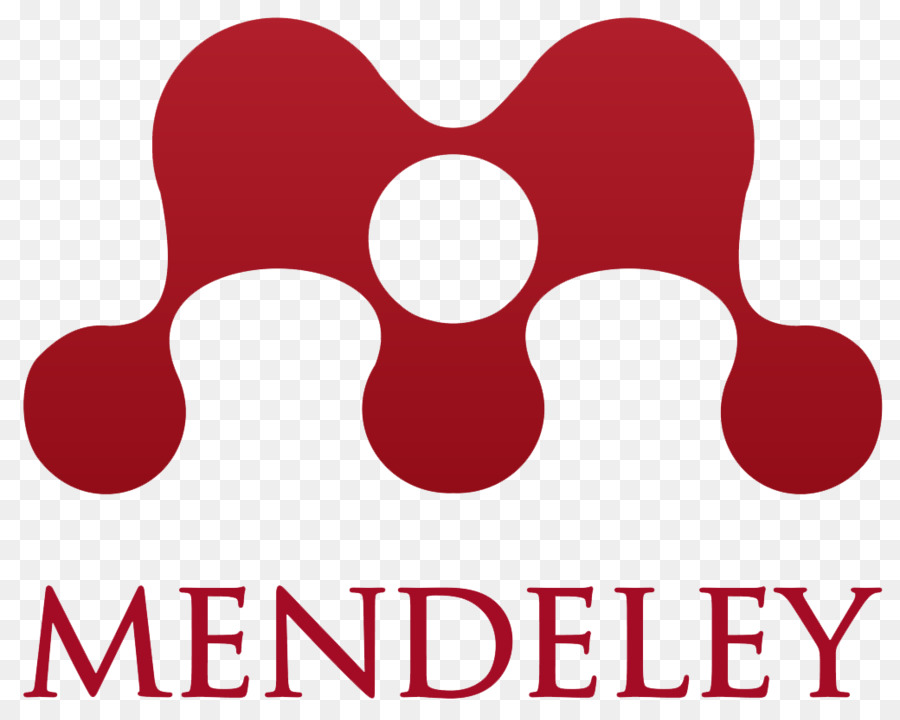ANALISIS PERAN TATA KELOLA BERBASIS KELEMBAGAAN WAKAF DALAM KERANGKA EKONOMI ISLAM
DOI:
https://doi.org/10.70248/jakpt.v2i4.2408Keywords:
wakaf produktif, ekonomi Islam, kelembagaan, digitalisasi, keadilan sosial, pembangunan berkelanjutanAbstract
Wakaf merupakan institusi ekonomi Islam yang memiliki potensi besar dalam mendukung pembangunan sosial dan ekonomi umat. Artikel ini menganalisis peran kelembagaan wakaf dalam kerangka ekonomi Islam dengan menekankan transformasi dari fungsi filantropis ke arah investasi sosial yang produktif dan berkelanjutan. Melalui pendekatan kualitatif berbasis studi kepustakaan, penelitian ini mengeksplorasi bagaimana optimalisasi wakaf baik dalam bentuk aset tetap maupun wakaf tunai dapat memperkuat layanan publik di bidang pendidikan, kesehatan, dan pemberdayaan ekonomi masyarakat. Studi ini juga menyoroti tantangan kelembagaan yang menghambat produktivitas aset wakaf, seperti lemahnya tata kelola, kurangnya transparansi, dan minimnya inovasi teknologi. Hasil kajian menunjukkan bahwa digitalisasi, integrasi wakaf dengan sistem keuangan syariah, serta kemitraan lintas sektor dapat menjadi strategi kunci dalam mengakselerasi peran wakaf sebagai pilar ekonomi Islam yang inklusif dan berkelanjutan. Oleh karena itu, diperlukan penguatan kelembagaan dan regulasi yang adaptif guna memastikan kontribusi wakaf terhadap keadilan sosial dan pencapaian tujuan pembangunan berkelanjutan (SDGs).
References
A historical overview of waqf. (2024). International Journal of Sukuk and Waqf Research, 1–8. https://doi.org/10.46281/ijswr.v5i1.2170
Abdullah, M. (2020). Islamic endowment (waqf) in India: Towards poverty reduction of Muslims in the country. Journal of Research in Emerging Markets, 2(2), 48–60. https://doi.org/10.30585/jrems.v2i2.482
Akbar. C, Eril, Abdullah, M. W., & Awaluddin, M. (2022). MANAJEMEN RISIKO DI PERBANKAN SYARIAH. Milkiyah: Jurnal Hukum Ekonomi Syariah, 1(2). https://doi.org/10.46870/milkiyah.v1i2.230
Alam, M., Rahman, M., Islam, F., Adedeji, B., Mannan, M., & Sahabuddin, M. (2021). The practices of Shariah governance systems of Islamic banks in Bangladesh. Pacific Accounting Review, 33(4), 505–524. https://doi.org/10.1108/par-10-2020-0195
Arodha, D. (2021). Optimizing waqf management for demographic bonus in Indonesia. Journal of Islamic Economics Perspectives, 3(2), 40–48. https://doi.org/10.35719/jiep.v3i2.48
Ascarya, A., Husman, J., & Tanjung, H. (2022). Determining the characteristics of waqf-based islamic financial institution and proposing appropriate models for indonesia. International Journal of Ethics and Systems, 39(1), 143–164. https://doi.org/10.1108/ijoes-01-2022-0001
Bushra, M., Nafees, S., Abdullah, M., & Mazahir, S. (2022). Management of waqf properties: A case study in Sri Lanka. Sprin Journal of Arts Humanities and Social Sciences, 300–310. https://doi.org/10.55559/sjahss.v1i06.32
Fauzi, R., Kurniasih, N., Athoillah, M., & Maulana, I. (2022). The role of share waqf on economic resilience in Indonesia. In Proceedings of the International Conference on Islamic Studies (pp. 42–49). https://doi.org/10.2991/978-2-494069-69-5_5
Fuadi, N. (2018). Wakaf sebagai instrumen ekonomi pembangunan Islam. Economica: Jurnal Ekonomi Islam, 9(1), 151–177. https://doi.org/10.21580/economica.2018.9.1.2711
Hassan, R., & Yusoff, A. (2020). Enhancing good governance practices of waqf institutions: Learning from Shariah governance framework of Islamic financial institutions. International Journal of Islamic Economics and Finance Research, 3(2), 65–76. https://doi.org/10.53840/ijiefer42
Huda, M., & Santoso, L. (2022). Implementation of corporate waqf core principles in the development of waqf in Indonesia. Academic Journal of Interdisciplinary Studies, 11(5), 114. https://doi.org/10.36941/ajis-2022-0129
Ichsan, M., & Mahmudi, H. (2022). Jogja waqf movement: Program models for social-economic development and poverty reduction in the community. In Proceedings of the International Conference on Islamic Studies (pp. 92–103). https://doi.org/10.2991/978-2-494069-65-7_10
Ismail, M., & Mohsin, M. (2023). Enhancing the regulatory framework for waqf in the Maldives. International Journal of Islamic Economics and Finance Research, 1, 78–90. https://doi.org/10.53840/ijiefer114
Khalil, A., & Taktak, N. (2020). Dampak karakteristik dewan syariah terhadap kesehatan keuangan bank syariah. Jurnal Akuntansi Dan Riset Bisnis Islam, 11(10), 1807–1825. https://doi.org/10.1108/jiabr-08-2018-0127
Lamido, A., & Haneef, M. (2021). Shifting the paradigms in waqf economics: Towards renewed focus on socioeconomic development. Islamic Economic Studies, 29(1), 18–32. https://doi.org/10.1108/IES-04-2021-0014
Man, N., Wahab, N., Hamid, N., & Nordin, R. (2019). Potential of waqf instrument in tourism industry in Malaysia. Journal of Islamic Philanthropy and Social Finance, 1(1), 38–54. https://doi.org/10.24191/jipsf/v1n12019_38-54
Medias, F., Pambuko, Z., & Artha, E. (2021). Crowdfunding platform as waqf land financing model: a case of muhammadiyah waqf institution. https://doi.org/10.4108/eai.18-11-2020.2311747
Medias, F., Rahman, A., Susamto, A., & Pambuko, Z. (2021). A systematic literature review on the socio-economic roles of waqf: Evidence from Organization of the Islamic Cooperation (OIC) countries. Journal of Islamic Accounting and Business Research, 13(1), 177–193. https://doi.org/10.1108/JIABR-01-2021-0028
Mohamad, S., & Mohamad, M. (2020). Islamic wealth management and issues in waqf management in Malaysia. In Wealth Management in the Islamic World (pp. 254–269). IGI Global. https://doi.org/10.4018/978-1-7998-1245-6.ch012
Muhammad, T., Al-Shaghdari, F., & Ibrahim, S. (2023). Islamic social finance in addressing poverty reduction and economic growth: Using structural equation modeling. The Journal of Muamalat and Islamic Finance Research, 179–191. https://doi.org/10.33102/jmifr.529
Puspita, A., & Tanjung, H. (2024). Waqf development in Indonesia: R application. International Journal of Waqf, 3(2). https://doi.org/10.58968/ijw.v3i2.357
Rahayu, R., & Agustianto, M. (2020). Analisis implementasi Cash Waqf Linked Sukuk (CWLS) perspektif prinsip ekonomi syariah. Management of Zakat and Waqf Journal (Mazawa), 1(2), 145–161. https://doi.org/10.15642/mzw.2020.1.2.145-161
Riani, R., & Fatoni, A. (2022). Waqf on infrastructure: How far has been researched? International Journal of Waqf, 2(2). https://doi.org/10.58968/ijf.v2i2.167
Riani, R., & Fatoni, A. (2024). Waqf-based waste management: A proposed model in Indonesia. International Journal of Waqf, 3(2). https://doi.org/10.58968/ijw.v3i2.404
Roslan, N., & Muhamad, N. (2024). Waqf reporting standardization: Towards a comprehensive governance framework. International Journal of Academic Research in Business and Social Sciences, 14(1). https://doi.org/10.6007/ijarbss/v14-i1/20610
Rusydiana, A., Sukmana, R., & Laila, N. (2023a). Waqf and partnerships for the goals (SDG-17): A Maqasid framework. MSR: Maqasid Shariah Review, 2(1). https://doi.org/10.58968/msr.v2i1.305
Rusydiana, A., Sukmana, R., & Laila, N. (2023b). Waqf development model for sdg-16 (peace, justice and strong institutions). Islamic Social Finance, 3(2). https://doi.org/10.58968/isf.v3i2.318
Rusydiana, A., Sukmana, R., Laila, N., & Ali, M. (2024). Waqf development for responsible consumption and production. Fara Id and Wealth Management, 3(2). https://doi.org/10.58968/fwm.v3i2.374
Saiti, B., Dembélé, A., & Bulut, M. (2021). The global cash waqf: a tool against poverty in muslim countries. Qualitative Research in Financial Markets, 13(3), 277–294. https://doi.org/10.1108/qrfm-05-2020-0085
Sano, M., & Kassim, S. (2021). Waqf governance in the Republic of Guinea: Legal framework, issues, challenges and way forward. ISRA International Journal of Islamic Finance, 13(2), 194–210. https://doi.org/10.1108/ijif-03-2020-0064
Sidi, M., & Rafiq, M. (2023). The efficiency of waqf practice in human resource development: Evidence from different countries. International Journal of Islamic Economics and Governance, 4(1), 80–105. https://doi.org/10.58932/muld0025
Tanjung, H., & Windiarto, A. (2021). Role of Cash Waqf Linked Sukuk in economic development and international trade. Signifikan: Jurnal Ilmu Ekonomi, 10(2), 275–290. https://doi.org/10.15408/sjie.v10i2.20493
Usman, M., & Rahman, A. (2020). Funding higher education through waqf: A lesson from Pakistan. International Journal of Islamic and Middle Eastern Finance and Management, 14(2), 409–424. https://doi.org/10.1108/imefm-05-2019-0200
Wulandari, S., Effendi, J., & Saptono, I. (2019). Pemilihan nazhir dalam optimalisasi pengelolaan wakaf uang. Jurnal Aplikasi Bisnis Dan Manajemen, 5(2), 295. https://doi.org/10.17358/jabm.5.2.295
Zulkifli, N., Ismail, M., Osman, G., & Zulkarnain, Z. (2022). A systematic literature review on waqf governance. E-Bangi Journal of Social Science and Humanities, 19(4), 1–10. https://doi.org/10.17576/ebangi.2022.1904.03
Downloads
Published
How to Cite
Issue
Section
License
Copyright (c) 2025 Jurnal Akuntansi, Keuangan, Perpajakan dan Tata Kelola Perusahaan

This work is licensed under a Creative Commons Attribution-NonCommercial 4.0 International License.




















